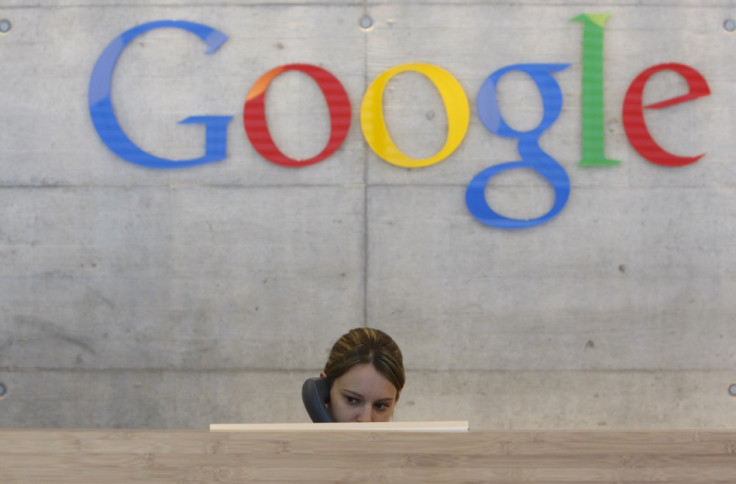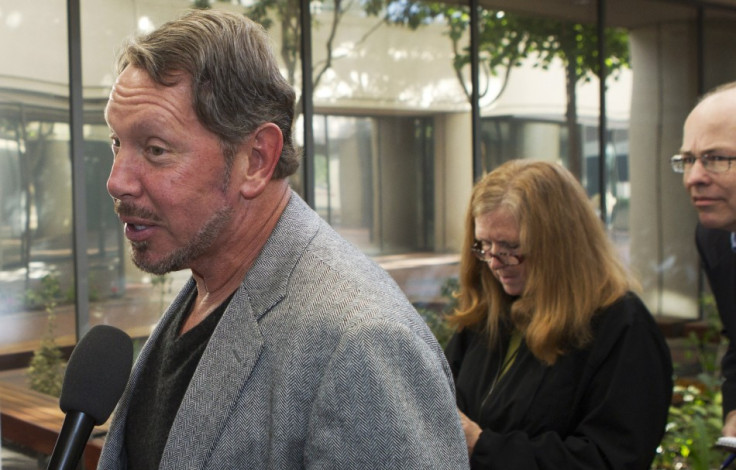Google Vs Oracle Trail Begins
A jury including a plumber, a retired postman, a store designer for GAP and a nurse has been selected to decide whether or not Google has breached copyright and patent laws in relation to the Java programming language, in one of the most important legal battles in the world of technology.
The Court case involving Google and Oracle begun in federal court yesterday in San Francisco, California, with jury selection and opening remarks from Oracle's legal team.

"You can't just step on somebody's intellectual property because you have a good business reason for it," an Oracle lawyer told the court. He told the jury of seven men and five women that Google had violated copyright and patent law when it begun developing Android with no regard for obtaining a licence from Sun Microsystems, the company which then owned Java and was subsequently bought by Oracle in 2010.
The unflattering portrait of Google was drawn by Oracle lawyer Michael Jacobs in the opening phase of a complex trial pitting two Silicon Valley powerhouses in a battle delving into the often mind-numbing minutiae of intellectual property and computer coding.
"We will prove to you from beginning to end that Google knew it was using someone else's property," Jacobs said near the end of his hour-long opening statement.
Oracle, a database company, acquired the rights to Java when it bought Sun Microsystems for $7.3bn (£4.6bn) in January 2010.
Google has continually denied Oracle's allegations since the lawsuit was filed seven months after the Sun deal closed.
The impasse has left it to a 12-member jury to resolve the dispute in a trial scheduled to last as long as 10 weeks. US District Judge William Alsup devoted most of Monday's session to picking the jury, leaving only enough time for Oracle to lay out the framework for its case.
The first phase of the trial will be taken up with the copyright issue, which is the most important and could have the most widespread implications for the technology world. Google claims the 37 applications programming interfaces (APIs) Oracle claims it infringed should not be covered by copyright law at all, as they are simply tools used by all software developers.
During the jury selection process, Judge Alsop excused from jury duty a webOS developer and an engineer who worked for Cisco. A number of the jury panel said they had heard of Oracle CEO Larry Ellison, though surprisingly, none said they had heard of Larry Page, co-founder and CEO of Google. Both men are set to give evidence during the 10 week trial.
Google is set to outline its case in court today and Oracle indicated that should Google get through its opening statement, then it would be calling Ellison to give evidence immediately.

Internal Google emails
Jacobs focused much of his opening statement on excerpts in internal emails that suggest Google knew it needed to pay licensing fees to use some of the Java technology that went into Android, a project that began in earnest in 2005 when Google bought a start-up run by Andy Rubin.
The first phone running on Android software didn't go on sale until October 2008, about 15 months before Oracle bought Sun Microsystems and stepped up the attempts to make Google pay up for the Java technology.
Oracle cited an October 2005 email from Rubin to Page as an early sign that Google realised it probably would have to pay Sun for using Java in Android.
"My proposal is that we take a license that specifically grants the right for us to Open Source our product," Rubin wrote.
Jacobs pointed to a May 2006 email from Schmidt to Rubin as an indication that Google knew it might need to seek other solutions for Android if it couldn't work out an agreement with Sun.
"How are we doing on the Sun deal?" Schmidt asked in his message. "Its [sic] it time to develop a non-Java solution to avoid dealing with them?"
By August 2010, Google still hadn't been able to find any satisfactory alternatives to Java, according to an email that Google engineer Tim Lindholm sent to Rubin.
"We have been over a bunch of these, and think they all suck," wrote Lindholm, who worked at Sun Microsystems before joining Google. "We conclude that we need to negotiate a license for Java under the terms we need."
The lack of a licensing agreement ultimately didn't deter Google, Jacobs told the jury, because the company realised it needed a mobile software system to preserve its digital search-and-advertising empire as more sophisticated phones enabled more people to surf the Internet while they were away from their desktop computers. Java provided Google with a springboard into mobile computing because 6 million software programmers were already familiar with the technology and could easily create applications that would run on Android, Jacobs said.
Although Google doesn't charge device makers to use Android, the company makes money from some of the mobile advertising and mobile applications sold on the system. Google has said its mobile advertising revenue now exceeds $2.5bn, but it hasn't specified how much of that money comes from Android-powered devices.
Last month Google offered a settlement to Oracle if it was found in breach of copyrights and patents, with included a $2.8m payout plus a fraction of future revenue from Android. Oracle turned them down flatly.
© Copyright IBTimes 2025. All rights reserved.






















